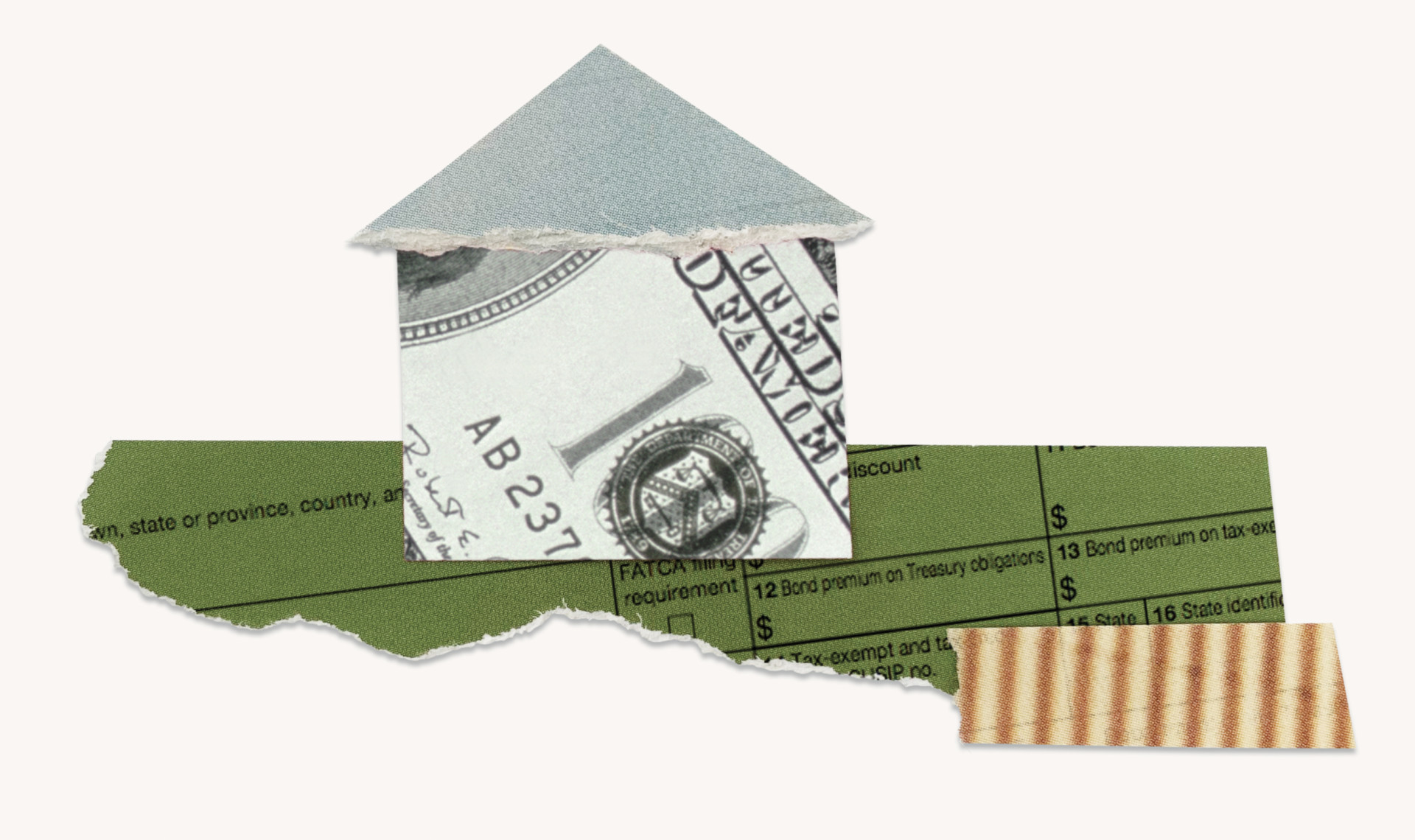Owning rental property comes with challenges, but significant tax deductions can make your investment pencil out even during tough economic times.
While most real estate investors know to write off mortgage interest, insurance, property taxes, and basic operating expenses, many miss out on additional deductions that could substantially reduce their tax burden.
Here are over 30 tax deductions you should consider when filing your rental property tax return.
1. Expenses related to starting a business
When starting your rental business, you can often deduct up to $5,000 of your startup costs if your total startup costs don’t exceed $50,000.
Let's say you spent $3,000 on accounting fees to set up your business structure, $1,200 on market research to find the best rental area, and $800 on office equipment. You may be able to deduct the full $5,000 on your tax return since your total startup costs don't cross that $50,000 threshold.
2. Expenses related to looking for new property
The costs of hotel, airfare, rental car, meals, and other travel expenses incurred while looking for a new rental property can be a deductible expense if they are ordinary and necessary and you actually purchase the subject property.
To qualify, at least half of the time spent away on travel must be spent on doing business, and the primary reason for travel must be business. This means you can deduct travel expenses for a long weekend in Florida as long as you spend the majority of time engaging in business-related activities.
3. Ordinary and necessary advertising expenses
You can usually write off costs for advertising your rental property and business. This includes online listing fees, newspaper classified ads, yard signs, direct mail campaigns, and website development costs.
4. Internet and cell phone plans
If you use your personal internet and cell phone for your rental business, you can typically deduct the business portion. It may be challenging to separate personal and business usage, but the key is to be reasonable and consistent and keep records.
One option is to subtract the estimated number of hours worked per month from the total number of hours there are in a month and use that difference to calculate the percentage of the cell phone bill to allocate to the business.
Let's assume you spend about 15 hours weekly managing your rental property. That's roughly 10% of your week, so you could deduct 10% of your monthly phone and internet bills. For a $100 internet bill, that's a $10 monthly deduction.
5. Suspended passive losses
If you are able to establish real estate professional status (REPS) in the eyes of the IRS, you can typically write off rental losses against other non-passive income you earn.
For those of us who don’t qualify for REPS, passive rental property losses that can’t be deducted right away are called suspended passive losses. These losses are carried forward indefinitely until one of two things happens:
- You have passive income (from a rental home or otherwise) to deduct against
- You sell or transfer the property
You can typically deduct the suspended losses when you sell the property, but only if the property is treated as a single activity for tax purposes. Many investors treat one or more of their properties as a single activity, which would mean that selling just one property would not allow them to deduct those suspended losses.
Finally, the sale must be made to an unrelated property and treated as a taxable event, meaning 1031 exchanges do not count. Foreclosures are usually eligible.
6. Utilities paid by the owner
You can deduct utility expenses you pay for your rental properties. This includes water, electricity, gas, trash collection, internet, and cable TV.
So if you pay $200 monthly for utilities in the common areas of your apartment building, plus $150 for water service to all units, both expenses are fully deductible. This is true even if tenants later reimburse you (though you'll need to report those reimbursements as offsetting income).
7. Paying family to help with property maintenance
You can sometimes reduce your tax burden by hiring your children to help with property maintenance tasks like mowing lawns, shoveling snow, and cleaning vacant units.
Keep a detailed log showing dates, hours worked, specific tasks completed, and payment amounts. This creates a legitimate business expense for you while teaching your children valuable lessons about hard work and property management. It’s a win-win, whether they see it that way or not!
8. Property maintenance fees
Property maintenance costs, whether they arise frequently or infrequently, are deductible, including:
- Pest control
- HVAC servicing
- Flushing sewage/water lines
- Landscaping
- Cleaning gutters
- Deep cleaning during rental turnover
- Power-washing
9. Property management fees
If you employ property management services, you can reduce your tax liability by the associated fees, which are considered administrative expenses and can usually be written off in full.
Property owners who manage their own rentals can write off costs like yearly maintenance, screening prospective tenants, and advertising.
If you’ve been considering hiring a property manager or thinking about switching from your current one, check out Mynd.
Our full-service property management platform aims to source and sign quality tenants that become long-term residents, thereby enhancing the value of your asset.
Here’s why real estate investors trust Mynd to manage their rental properties:
- Rental Income Guarantee:
- Eviction Protection Plan:
- All marketing is done for you, including professional photography, listing your property on rental advertising sites, and virtual tours.
- We conduct strict resident screenings including proof of income, identity validation, and credit checks.
- Mynd’s intelligent pricing engine is powered by in-house data from 18,000+ active units under management. This helps provide detailed metrics on current market rental rates, to deliver better financial outcomes with higher quality residents.
Go here to learn more.
10. HOA dues
If your rental property belongs to a Homeowners Association, your HOA dues are fully deductible against rental income.
11. Legal fees for an eviction
Legal fees are usually incurred as part of the costs of an eviction. Court fees and legal fees are deductible.
12. Expenses paid by tenant
Sometimes tenants cover expenses that would normally be your responsibility as the property owner. These payments count as rental income, but you can also deduct them as expenses.
For example, a tenant might cover their own HOA dues, which would be deducted from their monthly rent. Remember that:
- Expenses paid by the tenant count as rental income since the owner would be making those payments otherwise, and
- The expenses have to be themselves deductible, like water or sewage
13. Energy efficiency
You can sometimes earn tax deductions or enjoy accelerated depreciation for energy-efficient property upgrades. For example, replacing a 10-year-old HVAC or a 15-year-old water heater may qualify.
14. Employees
All employees and independent contractors hired to run the rental property business can be a deduction. That includes:
- Wages
- Social Security contributions
- Health insurance costs
- Other benefits
15. Insurance
Insurance premiums for your rental property are fully deductible, which can sometimes be as high as 15% to 25% more than homeowners' insurance for owner-occupied properties. Those who work out of a dedicated home office can also sometimes deduct a part of the insurance on the primary residence.
16. Casualty losses
You can claim deductions for property losses from unexpected events like fires or natural disasters, but only for amounts not covered by insurance.
The casualty loss claim has to be reduced by the amount the owner receives from the insurer. If the loss is 100% covered by insurance, the investor gets no deduction.
17. Rent for equipment and tools
Money spent on renting equipment and tools is tax-deductible. Examples include:
- Tools used for maintenance
- Reserving a helium tank for a work event
- Transportation and vehicle expenses
18. Subscriptions and memberships
The costs of many subscriptions, dues, and services are deductible. These include:
- Dues paid to professional organizations
- Subscriptions to trade publications (but not general magazines or “waiting room” magazines)
- Buying or subscribing to software, apps, and online tools used to run the business
- Cloud accounting tools
- Productivity apps
- Cloud storage
- Social media management tools
- Stock image services
- Digital downloads
- Fonts
- Ebooks
19. Meals and entertainment
After the Tax Cuts and Jobs Act (TCJA) of 2017, fewer costs for meals and entertainment are deductible, and the deduction is capped at 50%.
These costs must be directly related to running your business, you have to be physically present, and the amount can't be lavish or extravagant.
Examples include:
- Catering office meetings
- Meals eaten on business trips and at conventions, conferences, or seminars
- Meals provided for the convenience of the employer on the employer's premises
- Office snacks, water, and coffee
- Meals provided along with charitable event tickets
You can still get a 100% deduction on all recreational or social employee events so long as they're open to everyone and don't discriminate based on employee compensation.
In order for meals for business purposes to count for a tax deduction, the investor has to be present for said meal.
20. Education
Education and training for the rental property business can be written off, although there are many stipulations for this one, so you should research carefully.
A description of the service or item is often enough to make the deduction. Deductible expenses include:
- Conferences
- Coaches
- Books
- Webinars
- Networking events
21. Interest paid on loans or credit cards
Beyond mortgage interest, you can deduct interest from other loans and credit cards used for your rental business.
Let's say you use a specific credit card exclusively for rental property expenses and pay $1,200 in interest annually. Since you use this card solely for business, you can deduct the entire interest amount.
22. Marketplace fees
Costs for short-term rental services such as Airbnb and HomeAway for business purposes are entirely deductible.
23. Petty cash expenses
Many of the items referenced in this article could be considered petty cash expenses (food, parking, printing documents, etc.). You should make sure to keep track of all these, because they're tax-deductible.
Investors can use a logbook, vouchers, etc., to note the time, date, amount, and what was paid for, and add them all to your bookkeeping at the end of the month.
24. Travel, parking, and tolls
You can deduct travel expenses for making repairs. However, if they are used to make improvements, they have to be depreciated. You can use the expenses incurred (gas, repairs, upkeep) or the standard mileage rate, which changes yearly (which can be confirmed here on the IRS website).
If travel requires staying overnight, all the associated costs, such as airfare, lodging, and food, are typically deductible.
Parking garages, tolls, and meters can also all be counted so long as you are driving or parking anywhere other than the principal place of business (like an office). If the office is the principal place of business, business parking and tolls are deductible.
As always, keep thorough records.
25. Home office or workshop
If you use part of your home exclusively for managing your rental business, you may qualify for the home office deduction.
Office furniture, tools, and a portion of other expenses, like utilities and home maintenance, might also qualify as write-offs. Before taking this deduction, it is wise to consult with an accountant to be sure they understand the minimum requirements that make these spaces eligible for write-offs.
26. Expenses for preparing documents
If you have documents printed, bound, laminated, shipped, etc., the costs are deductible so long as they are for the businesses. However, you typically cannot deduct:
- Legal fees for buying business assets.
- Fees for personal work, like funding rental real estate into a trust. If you are invoicing for something that serves both business and personal functions, separate the two out and deduct only the business part.
27. Selling the property to one's own S Corp
In rare circumstances, it might make sense for an owner to sell their rental property back to themself by creating an S corporation. For instance, selling a property to your S corp may allow you to shield the appreciated value through capital gains protection.
Let's say you bought a rental property in 2015 for $200,000, made $50,000 in improvements, and lived in it until 2019 before converting it to a rental.
If you sell it now for $400,000, you'd face capital gains tax on the appreciation because you haven't lived in it as your primary residence for two of the last five years.
However, if you had sold it to your S corporation between 2019 and 2022, you could have potentially excluded those capital gains by meeting the two-year residency requirement.
Selling to an S corp can be complicated, and this tactic shouldn't be used by everyone. Owners should consult with a tax advisor before deciding to go this route.
This is why property owners should know how to pick the right legal entity for their real estate investment business.
28. Depreciate more than the standard 1/27.5 years
When you buy a rental property, the purchase includes multiple assets: the land the building sits on, the improvements to the land such as landscaping, the building itself, and any property included with the sale.
Most investors depreciate all of these items together over the standard 27.5-year recovery period. However, each asset can also be depreciated separately (known as cost segregation).
For example, assume you purchase a rental property for $400,000 (excluding land value). Standard depreciation gives you about $14,545 in deductions annually.
With cost segregation, you might identify $100,000 in components that qualify for 5-year depreciation. This could increase your deductions to over $30,000 in the first few years, though the total depreciation amount remains the same long-term.
You should consult a qualified accountant to determine if this approach makes sense for your situation. Cost segregation studies are typically required by the IRS and studies are usually only completed by qualified professionals.
29. Capital improvements and repair costs
An improvement is work that adds value to a rental property. Because the value added by the improvement extends over time, it's written off yearly as a depreciation. Meanwhile, a repair is anything that allows you to keep operating your property.
Examples of improvements:
- Additional dwelling units (ADUs)
- Adding an AC
- Renovations
- New hardwood floors
- Replacing a roof
Examples of repairs:
- Repairing a window screen
- Patching existing tilework in a shower
- Patching a hole in the roof
- Fixing a leaky faucet
Differentiating a repair from an improvement can be tricky. A useful delineation is that improvement adds value to the property while repairs return things to their original condition.
When in doubt, use the BAR acronym to identify if the work is a repair or an improvement and always check with a qualified CPA before making a final decision:
Betterment: Does it remedy a problem that was around before they purchased the property? Does it physically make the property bigger or better?
Adaptation: Will the owner be using the property in a way other than how she planned to use it when she first bought the property?
Restoration: Is the owner restoring the property to like-new condition? Has the damage already cost her money?
If you said yes to any of these questions, the IRS might call it an improvement and you would typically depreciate the cost rather than expensing it in the year incurred.
30. Faster depreciation for personal property
You can speed up depreciation for a personal property using the Modified Accelerated Cost Recovery System (MACRS). It has to be personal property that's inside the rental property or property that's used as part of the rental business. For example:
- Appliances, carpeting, and furniture can be depreciated over five years.
- Fences and driveways can be depreciated over 15 years.
Consult the IRS's list of assets to learn more.
31. 100% bonus depreciation and Section 179 deduction
Tax law typically requires businesses to spread out depreciation deductions for an asset over the “useful life” of the asset, but 100% bonus depreciation and Section 179 deductions allow them to take a depreciation deduction all at once.
In 2023, the 100% bonus depreciation deduction began decreasing 20% every year until 2027, at which point it will no longer exist. Both deductions apply only to specific improvements and purchases. Here’s how that looks by year:
- Tax year 2023: 80% bonus depreciation deduction
- Tax year 2024: 60%
- Tax year 2025: 40%
- Tax year 2026: 20%
- Tax year 2027: 0%




